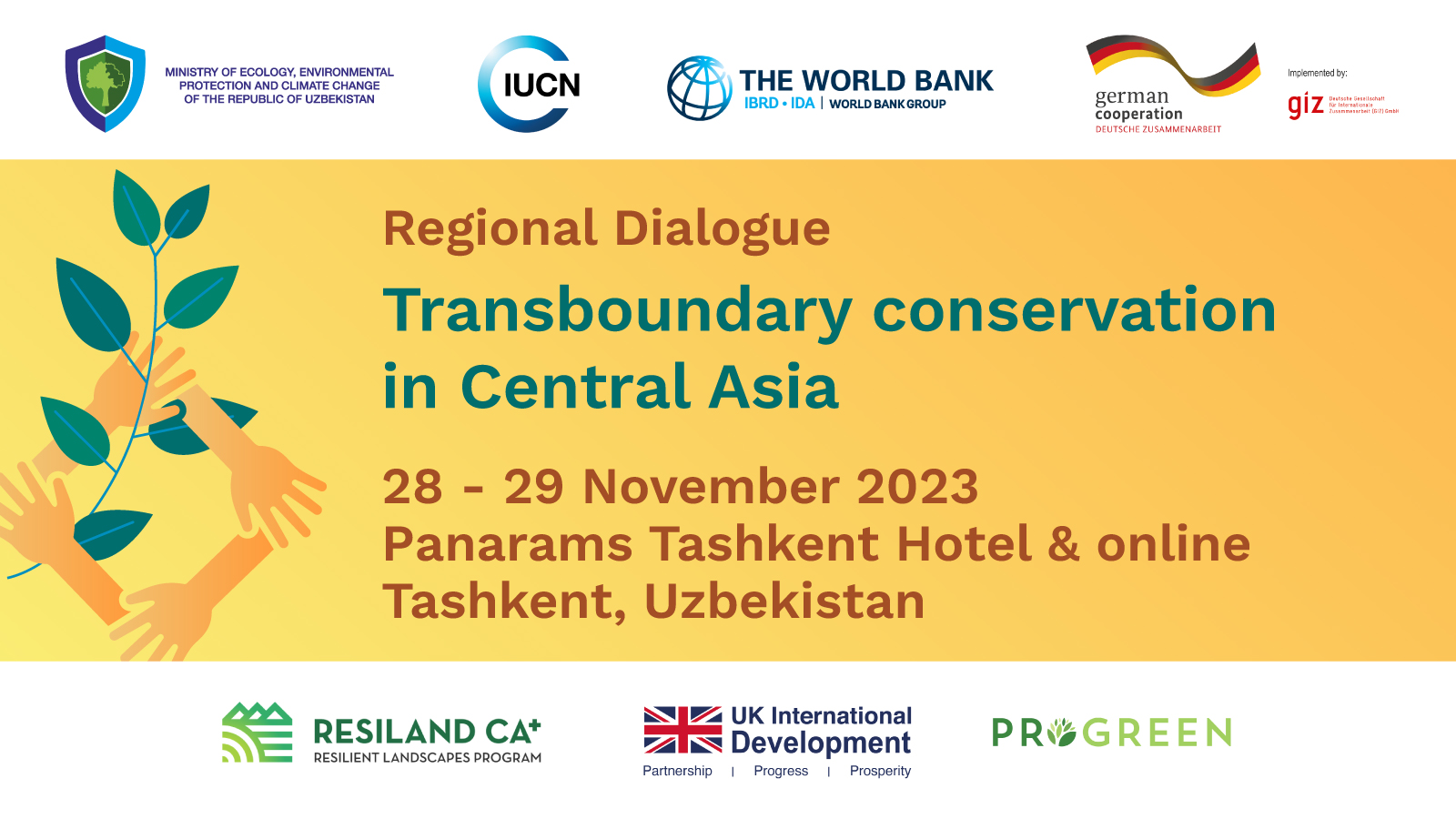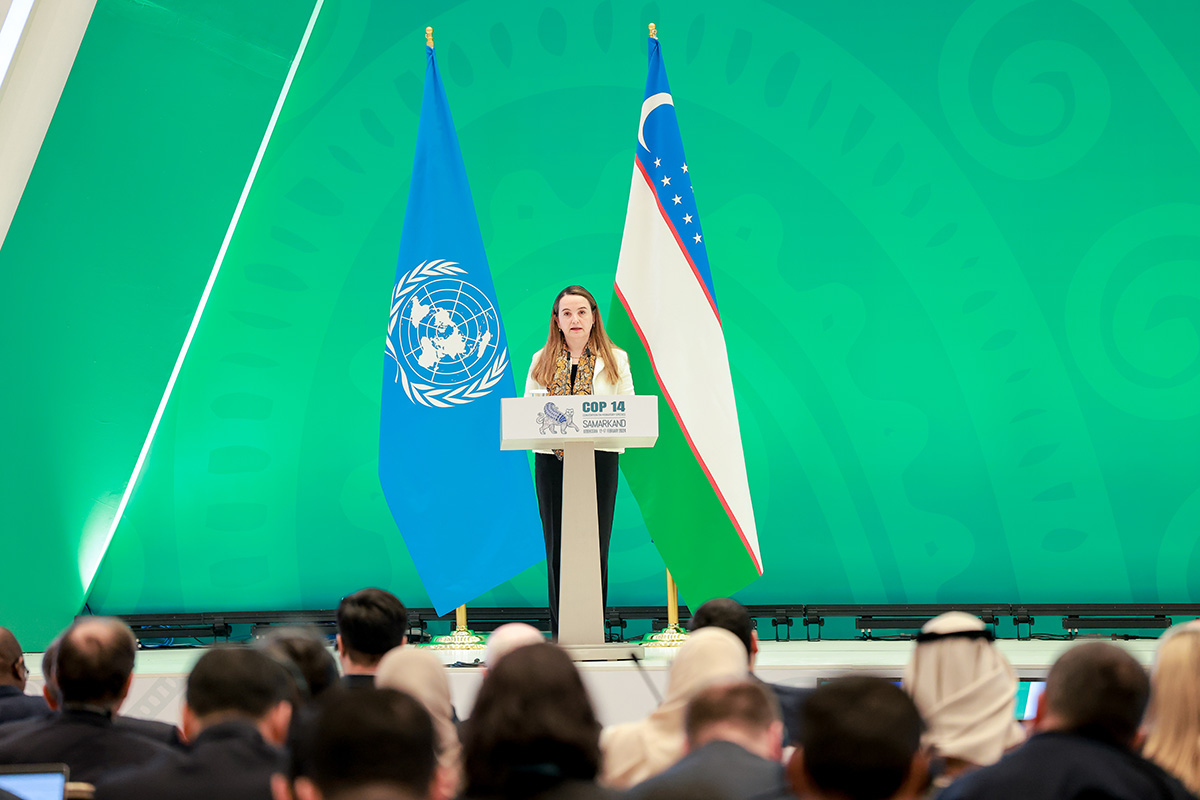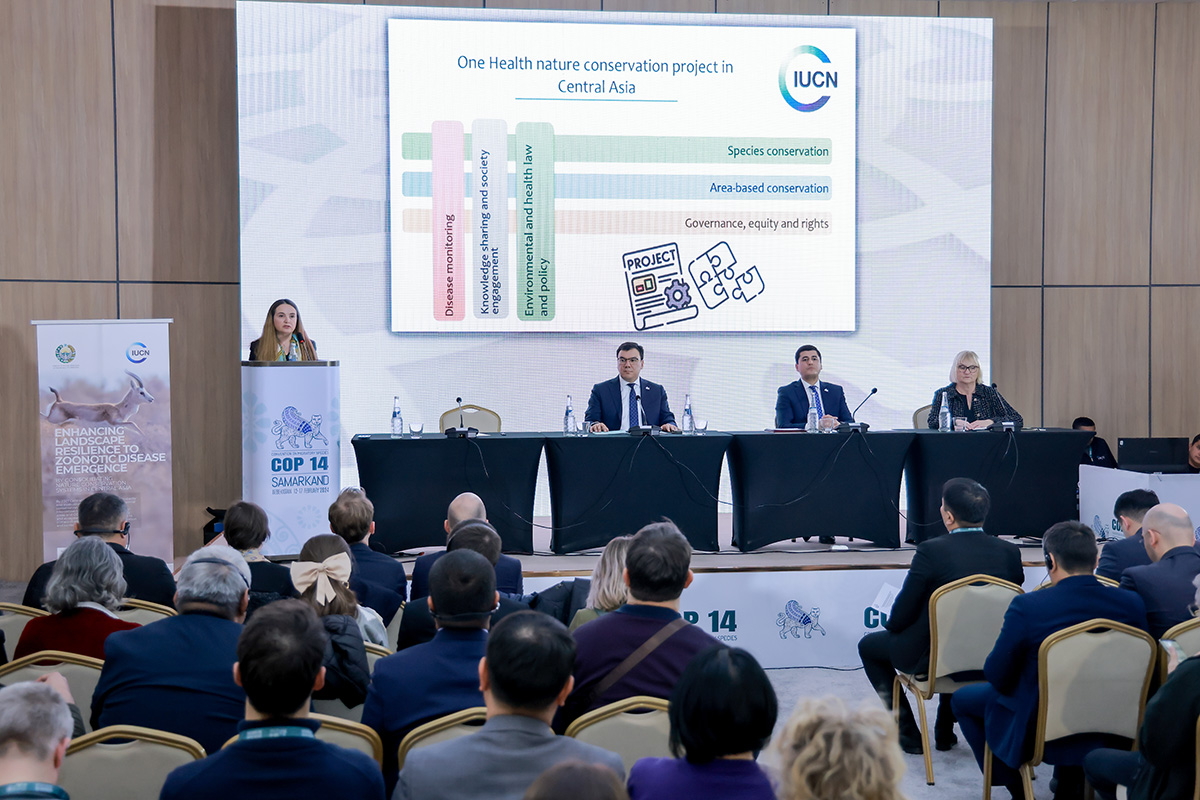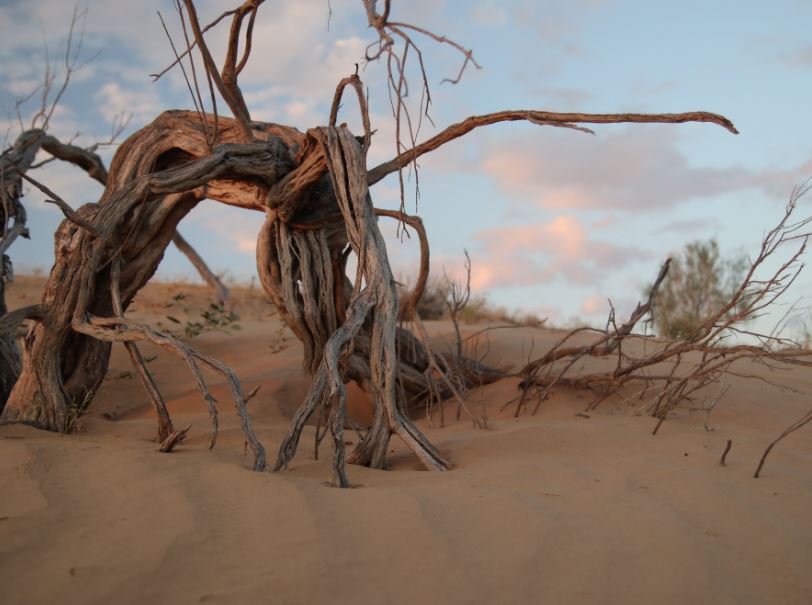Towards a shared vision for biodiversity conservation in Central Asia
Cooperation among Central Asia countries to protect biodiversity and promote sustainable management of natural resources is gaining momentum. The Regional Dialogue on Transboundary Conservation in Central Asia held 28-30 November 2023 in Tashkent, Uzbekistan, makes a significant stride in advancing this shared agenda. The event is attended by government representatives from Kazakhstan, the Kyrgyz Republic, Tajikistan, Turkmenistan, and Uzbekistan, and numerous national and international organisations.
"The Government of Uzbekistan is pleased to co-host this three-day knowledge-sharing event on regional transboundary biodiversity conservation. It is an opportunity for us to start shaping a joint vision that taps into ecological and economic benefits across shared transboundary corridors in Central Asia, and fosters nature tourism development”, said Aziz Abdukhakimov, Minister of Ecology, Environmental Protection, and Climate Change of Uzbekistan, sending his welcoming message to the participants.
The Regional Dialogue is co-hosted by the Ministry of Ecology, Environmental Protection and Climate Change of Uzbekistan, the International Union for Conservation of Nature (IUCN), the World Bank, and Deutsche Gesellschaft für Internationale Zusammenarbeit (GIZ) GmbH (German federal enterprise for international cooperation). The event is part of the activities supported under the World Bank's Resilient Landscape Central Asia Program (RESILAND CA+) and three regional programmes implemented by GIZ, which are stimulating the cooperation between the Central Asian countries in the respective areas: Green Central Asia, Integrative and climate-sensitive Land Use (ILUCA) and Ecologically Oriented Development in the Aral Sea Region (ECO ARAL).
Ecosystems that are divided by borders are often subject to different policy, management, and governance structures. Transboundary conservation is a way to overcome these differences by promoting cooperation between relevant parties of the involved countries. It offers many benefits, ranging from ecological advantages, such as thriving wildlife and increased ecosystem services, to political collaboration fostering more friendly relations between countries sharing a common border, economic cooperation, and social development.
"The World Bank welcomes the efforts of the countries of Central Asia to take joint measures on transboundary biodiversity conservation. We will continue supporting the regional dialogue and concrete actions in this area through our RESILAND CA+ Program. Namely, a Bank-funded project will help implementing specific land restoration activities within six transboundary corridors on Uzbekistan’s border with Kazakhstan, the Kyrgyz Republic, and Tajikistan", noted Marco Mantovanelli, World Bank Country Manager for Uzbekistan.
 Photo: IUCN
Photo: IUCN
Transboundary conservation contributes to long-term survival of migratory species by enlarging the area under conservation management, reducing fragmentation, and enhancing connectivity. This is of high relevance for Central Asia, home to critically important migratory corridors harbouring unique species such as wild herds of goitered gazelle and saiga antelope, to name a few.
“A shared vision, political leadership, and broad community participation are key to successful transboundary conservation. This year’s inscription of the Cold Winter Deserts of Turan as a transnational World Heritage site is a clear sign of improved capacity and potential for conservation excellence in Central Asia. IUCN will continue to assist partners at all levels in promoting regional and transboundary initiatives in the region”, highlighted Boris Erg, Director of IUCN’s Regional European Office.
Currently, IUCN is supporting the finalisation of a Framework plan for transboundary cooperation between Kazakhstan, Kyrgyzstan, and Uzbekistan, all committed to coordinated action in the Western Tien Shan mountains region.
 Regional Dialogue on Transboundary Conservation in Central Asia opening session
Photo: IUCN
Regional Dialogue on Transboundary Conservation in Central Asia opening session
Photo: IUCN
To support the officials involved in initiating, managing, and governing transboundary conservation programs, the IUCN World Commission on Protected Areas (WCPA) has developed a set of common principles and best practice guidelines. At the Regional Dialogue, taking place these days in Tashkent, IUCN will deliver training on transboundary conservation for national authorities, regional experts, and protected area managers. It introduces the Diagnostic Tool for Transboundary Conservation Planners developed by the IUCN WCPA Transboundary Conservation Specialist Group.
Through this tool, participants will learn how to evaluate the feasibility of establishing a transboundary initiative and develop strategies to manage stakeholders’ interests, mitigate the risks that could hinder the process, reach consensus on joint management objectives and approaches, and develop a shared vision and roadmap.
“On behalf of the German Government GIZ is supporting and promoting regional transboundary cooperation in protected areas in Central Asia through three regional programmes focusing on building the capacities of rangers, strengthening ecological and economic development across borders, and supporting regional dialogue and cooperation”, says Caroline Milow, Programme Manager at the Green Central Asia Project, implemented by GIZ.
Other discussions during the Regional Dialogue, involving regional and international experts, focused on Peace parks and environmental peacebuilding, the benefits and economic impact of nature-based tourism and opportunities for its development in Central Asia, and the role of local communities in the management and conservation of protected areas in the region.



